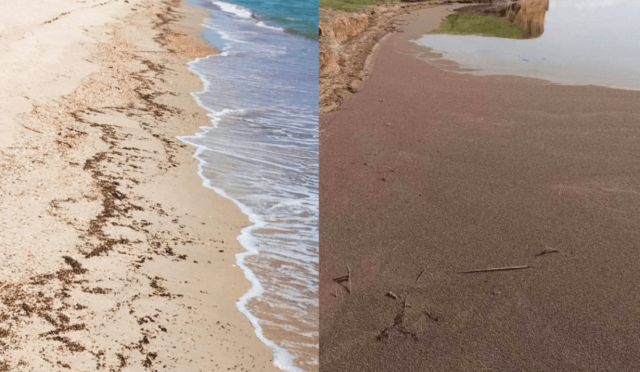Incredible Flying Ant Phenomenon on the Black Sea Coast
In the coastal area of the Black Sea, on the shores of the Tuzla estuaries, there is an active wildlife. When the sea and estuaries are calm, the waves become friendly and an army of beneficial mosquito bellflowers appears in the air, beneficial for the biosphere. However, amidst this wonder, for several days in the morning an incredible number of flying ants appear. «Thousands of them circle in the sky above the sea and estuaries,» said Dr. Ivan Rusev, a biologist and employee of the national park.
According to him, there is currently a large number of ants on the sandy shores along the estuaries, in the seawater, on the sand, and in the mud. The scientist adds that on the coast of the Burnas estuary, ants have been gathering in the millions for several days, mating, and then dying and falling into the water — tens of thousands of ants per square meter. «In total, several million ants were counted along the route. And on the Burnas estuary, over the course of several days, if it can be estimated at all, tens of billions have accumulated. They are unexpectedly early (due to climate change) in their mating season, but last year such a phenomenon was observed in June on the Tuzla estuaries,» explaining Rusev.
He added that ants are a fairly common type of insect in the Black Sea region. They cannot be confused with other «relatives» due to their body structure. When an ant colony is naturally ready to reproduce, the adult winged ants simultaneously receive a signal to leave the anthill.
«Their only purpose in life now is mating, after which the females establish a new colony. Weather conditions must be appropriate — bright sunlight, light wind, high humidity, and warm temperature, preferably after 3-4 days of rain — all conditions, and they fly away,» says the scientist.
He emphasized that large swarms fly and land, «land» due to exhaustion, some are picked up by birds, some are successful, and hundreds of thousands, millions drown in the sea and estuaries, where they turn into biological dust, which is very beneficial for mullet fish.







